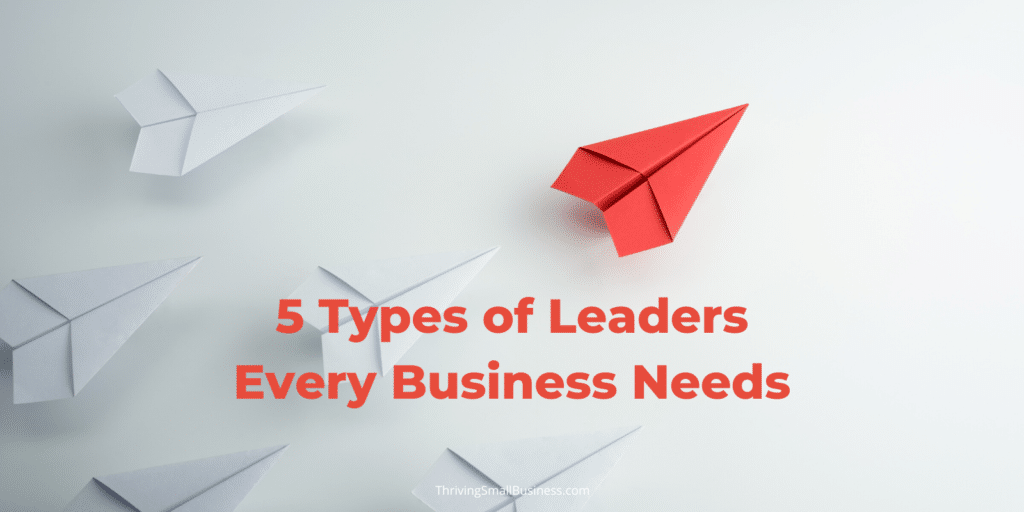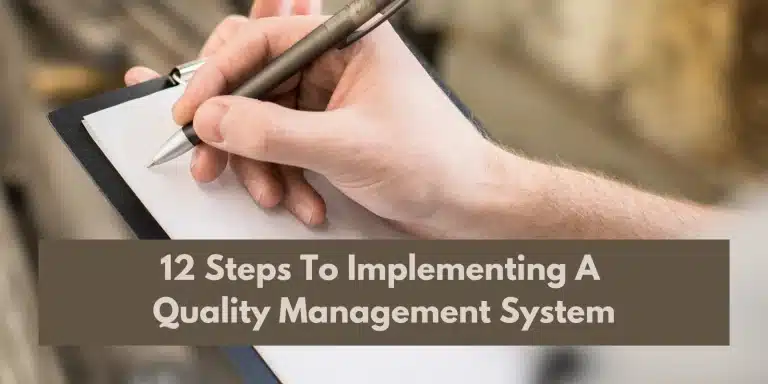5 Types of Leaders That Every Business Needs
Estimated reading time: 4 minutes
When it comes to hiring new employees, and expanding your growing business, leadership is one of the most desirable qualities.
A strong leader can make unpopular but essential decisions is driven by results, and can exercise strong self-control to ensure the end-goal.
It should come as no surprise then that it is these people who are most likely to succeed in business, often achieving higher salaries and positions of responsibility as compared to other personality types.
But leadership is a broad quality of which there are many types, and knowing which leader is most appropriate for driving success in your business is essential to building productive teams.
5 Types of Leaders
1. The Inspector
The loudest is not always the most successful and this is often true of inspector-type leaders.
As the name would suggest, inspectors, are highly detail-orientated and thrive off of doing things by the book.
If your business has overlooked fine, important details in the past, or you require someone who does well in financial or contract-based roles, then hiring an inspector is likely to turn things around.
2. The Mastermind
This type of leader values logic above all else, pure and simple.
While they are especially independent – and this needs to be respected for them to be able to offer their best – they are extremely adept at solving complex challenges that often go ignored or are given up on by others.
3. The CEO
These hard-working leaders often have advanced business degrees and fit the stereotype: they’re optimistic, value quick and decisive decision-making, and are the most likely to think of options when faced with obstacles.
However, a word of warning: while they will inspire others with their outgoing and positive approach, they are not as likely to consider all options when making decisions, frequently assuming that everyone will simply agree with them.
4. The Supervisor
If your existing business or teams are showing signs of disorganization, then a supervisor is probably the best leader to seek out next.
For them, success is short-term, tangible, and visible, so you can expect fast and effective results; just don’t assign them projects that may require long periods to complete.
5. The Inventor
The inventor is the personality type most likely to become an entrepreneur, primarily because of their risk-taking, can-do attitude.
These are the people who will insist anything can be done, and the more you tell them otherwise, the more they will be determined to find a way.

While this can sometimes lead to clashes amongst teams or even with those of greater authority, inventors are undeniably experts at innovating businesses and driving them into the future.
How to Find Leaders for Your Business
Having identified which leader you need, you will need to identify potential candidates who meet these qualities.
While interviews, work history, and references should all factor into your selection, candidates will always attempt to present to you their best selves when applying for a job.
So, in addition, you should begin integrating a personality test into your hiring process.
The above personality types refer to 5 of the 16 personality outcomes of the Myers-Briggs Type Indicator (MBTI), which is the most popular personality test among businesses for its ease of administration and the detailed profiles it presents.
If you’d prefer a more reliable test or one with more focus on business-only aspects of personality, alternatives are available.
Too Many Cooks
One of the most attractive elements of the MBTI is not only that it gives an indication of a person’s desired way of working and motivations, but it also gives recruiters insight into their key stressors.
For instance, supervisors and inspectors who crave plans and structures may frequently clash with the more spontaneous inventors who like to change things on a whim.
Equally, while leaders are essential for driving forward, solving problems, and innovating, teams also need emphatic people to create a friendly work environment, as well as hardworking and highly skilled types capable of getting on with the work – after all, without them, there won’t be anyone to enact all those great ideas.
Start by identifying what type of leader your business needs and use a personality test to help inform your hiring decision.
Just remember, your current workforce has their preferred way of doing things, too – while it can be good to mix things up a little where there are problems, you don’t want to upset a productive team.






